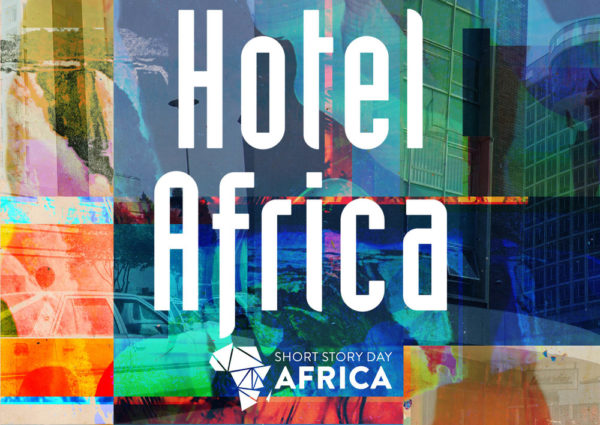
Twenty-one writers have been longlisted for the 2018/19 Short Story Day Africa Prize. Founded in 2011, the Short Story Day Africa Prize—which offers US$800 for first place, $200 for second place, and $100 for third place—recognizes the best short stories submitted for Short Story Day Africa‘s themed anthologies. Works that have won or been shortlisted for the SSDA Prize have gone on to both win and be shortlisted for the Brittle Paper Award for Fiction and the Caine Prize, establishing Short Story Day Africa as the continent’s most influential institution for short fiction.
The 2018/19 prize theme is “Hotel Africa”:
innovative short fiction set in the rooms, the passages, the bars and the lobbies of hotels across the continent, as well as metafiction exploring Africa as a hotel herself. If these walls could talk, what story would they tell?
The longlisted stories will appear in an anthology, Hotel Africa: New Short Fiction from Africa, to be edited by Helen Moffett, who will work with three editing fellows as part of the SSDA/Worldreader Editing Mentorship.
Here is the longlist:
- ‘The Satans Inside My Jimmy’ by Harriet Anena (Uganda)
- ‘The Jollof Cook-off’ by Nkiacha Atemnkeng (Cameroon)
- ‘The Last Resident’ by Jayne Bauling (South Africa)
- ‘Mr Thompson’ by Noel Cheruto (Kenya)
- ‘The Layover’ by Anna Degenaar (South Africa)
- ‘A Miracle In Valhalla’ by Nnamdi Fred (Nigeria)
- ‘Of Birds and Bees’ by Davina Kawuma (Uganda)
- ‘Maintenance Check’ by Alinafe Malonje (Malawi)
- ‘Why Don’t You Live in the North?’ by Wamuwi Mbao (South Africa)
- ‘Slow Road to the Winburg Hotel’ by Paul Morris (South Africa)
- ‘The Snore Monitor’ by Chido Muchemwa (Zimbabwe)
- ‘Outside Riad Dahab’ by Chourouq Nasri (Morocco)
- ‘Broken English’ by Adorah Nworah (Nigeria)
- ‘Queens’ Children’s Little Feet’ by Godwin Oghenero Estella (Nigeria)
- ‘Door of No Return’ by Natasha Omokhodion-Banda (Zambia)
- ‘An Abundance of Lies’ by Faith Oneya (Kenya)
- ‘The Match’ by Troy Onyango (Kenya)
- ‘Supping at the Fountain of Lethe’ by Bryony Rheam (Zimbabwe)
- ‘Happy City Hotel’ by Adam El Shalakany (Egypt)
- ‘The Space(s) Between Us’ by Lester Walbrugh (South Africa)
- ‘Shithole’ by Michael Yee (South Africa)
“This year’s longlist was particularly difficult to decide,” said SSDA founder Rachel Zadok. “Like last year, the slushpile was read by a team of professional editors with an eye on development, so that no talent, no matter how raw, was overlooked. Instead of looking simply to the most polished stories to make up the list, we looked at the originality of the story. We looked for that sparkle in a writer’s voice that’s almost impossible to define, but when you see it, it creates a buzz in your brain. Of course, this doesn’t mean that there are no polished writers on the list, just that the playing field was more equal. The stories on the longlist each explore the theme in unique and fascinating ways.”
Here is the rest of the press release.
‘We’re pleased to see that quite a few stories come from writers who attended the Flow Workshops, and that writers who have previously been longlisted and have participated in Flow Workshops and the Development Editing Process, like Harriet Anena and Lester Walbrugh, have come so far in their storytelling. They’ve gone from “good” to ‘”wow, fantastic!”
‘We’re also seeing a greater number of stories from previously under-represented countries. It’s wonderful to be publishing writers like Adam El Shalakany from Egypt, who has entered the SSDA Prize in the past but has never been placed. His story “Happy City Hotel” was one of the unanimous decisions, of which there were only six out of the twenty-one. After months of reading, which culminated in three and a half hours of deliberation, arguing and tears, each of us walked away a little heartbroken for the favourites we had to sacrifice. So to the writers who didn’t make the list this year: don’t give up. We’ve got our eyes on you.
‘We want to extend express thanks to our sponsors, the Goethe-Institut, the Miles Morland Foundation, Worldreader and the Beit Trust, and our publishing partner New Internationalist.’









Kanyinsola Olorunnisola May 12, 2019 15:47
Funny how we're getting a new edition and the shortlist for this one isn't even out yet. Good luck to everyone on the list.